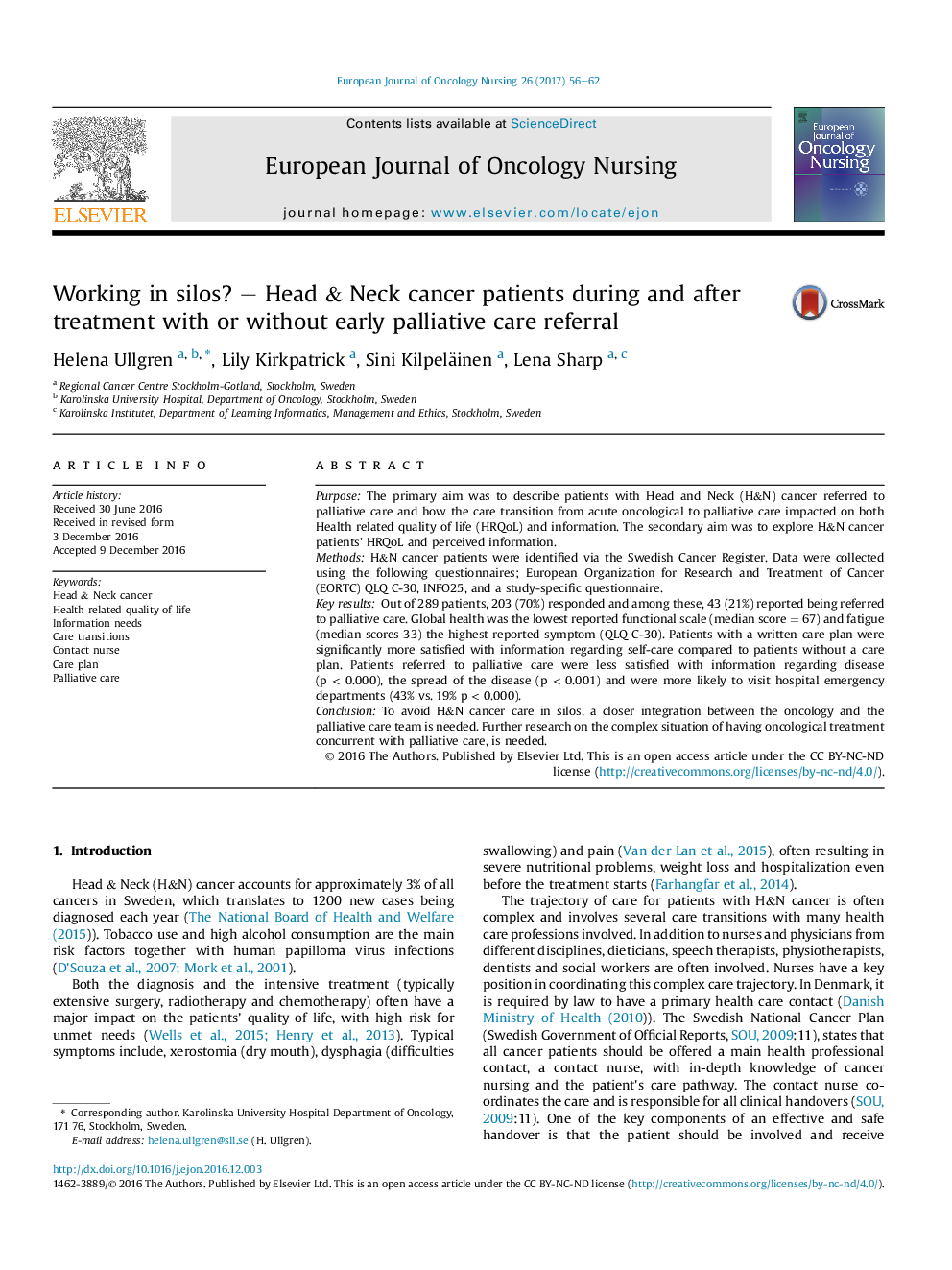| Article ID | Journal | Published Year | Pages | File Type |
|---|---|---|---|---|
| 5567779 | European Journal of Oncology Nursing | 2017 | 7 Pages |
PurposeThe primary aim was to describe patients with Head and Neck (H&N) cancer referred to palliative care and how the care transition from acute oncological to palliative care impacted on both Health related quality of life (HRQoL) and information. The secondary aim was to explore H&N cancer patients' HRQoL and perceived information.MethodsH&N cancer patients were identified via the Swedish Cancer Register. Data were collected using the following questionnaires; European Organization for Research and Treatment of Cancer (EORTC) QLQ C-30, INFO25, and a study-specific questionnaire.Key resultsOut of 289 patients, 203 (70%) responded and among these, 43 (21%) reported being referred to palliative care. Global health was the lowest reported functional scale (median score = 67) and fatigue (median scores 33) the highest reported symptom (QLQ C-30). Patients with a written care plan were significantly more satisfied with information regarding self-care compared to patients without a care plan. Patients referred to palliative care were less satisfied with information regarding disease (p < 0.000), the spread of the disease (p < 0.001) and were more likely to visit hospital emergency departments (43% vs. 19% p < 0.000).ConclusionTo avoid H&N cancer care in silos, a closer integration between the oncology and the palliative care team is needed. Further research on the complex situation of having oncological treatment concurrent with palliative care, is needed.
